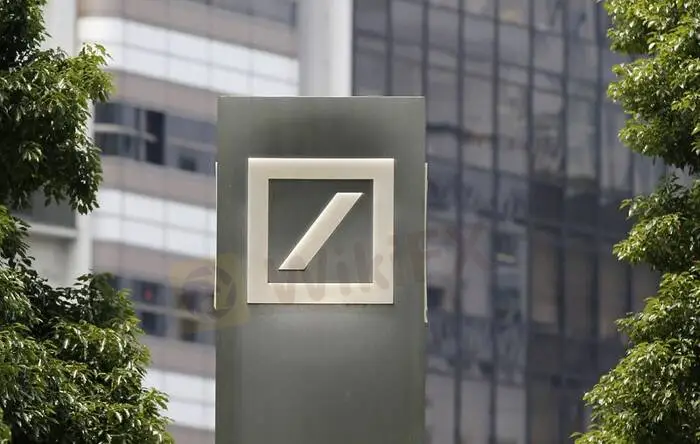简体中文
繁體中文
English
Pусский
日本語
ภาษาไทย
Tiếng Việt
Bahasa Indonesia
Español
हिन्दी
Filippiiniläinen
Français
Deutsch
Português
Türkçe
한국어
العربية
International banks in UAE to switch to Mon-Fri work week
Abstract:By Anirudh Saligrama (Reuters) – Deutsche Bank AG and JPMorgan Chase & Co are changing to a Saturday-Sunday weekend from the New Year in the United Arab Emirates (UAE) which is aligning its working week with most global markets.

International banks in UAE to switch to Mon-Fri work week
By Anirudh Saligrama (Reuters) – Deutsche Bank AG and JPMorgan Chase & Co are changing to a Saturday-Sunday weekend from the New Year in the United Arab Emirates (UAE) which is aligning its working week with most global markets.
Deutsche Bank AG, JPMorgan Chase & Co and Societe Generale SA are changing to a Saturday-Sunday weekend from the New Year in the United Arab Emirates (UAE) which is aligning its working week with most global markets.
The German bank will from Jan. 3 operate Monday-Friday in the Sunni Muslim-ruled country, instead of the current Sunday-Thursday as is common around the Middle East, a source familiar with the matter told Reuters.
Wall Street-based JPMorgan is also adapting the same week in UAE, along with flexible practices such as a break for Muslim prayers on Fridays, the bank said in a statement.
France-based Societe Generales spokesperson said it is implementing Saturday-Sunday weekend from Jan. 2 in its Dubai and Abu Dhabi entities, according to an emailed statement.
Bloomberg News was the first to report on Sunday that JPMorgan, Deutsche Bank, Bank of America Corp and Societe Generale will switch to a Saturday-Sunday weekend in the UAE.
Representatives of Bank of America did not immediately respond to a Reuters request for comment.
The banks move comes after the UAE said on Dec. 7 that it would shift to a four-and-a-half day week with a Saturday-Sunday weekend from the start of next year.
Private companies are, however, free to choose their own working week in the oil-producing Gulf state which is the regions commercial, trade and tourism hub.
Over the past year, the UAE has taken measures to make its economy more attractive to foreign investment and talent at a time of growing economic rivalry with Saudi Arabia.
(Reporting by Anirudh Saligrama in Bengaluru; Editing by Andrew Cawthorne)

Disclaimer:
The views in this article only represent the author's personal views, and do not constitute investment advice on this platform. This platform does not guarantee the accuracy, completeness and timeliness of the information in the article, and will not be liable for any loss caused by the use of or reliance on the information in the article.
Read more

Blockchain Decentralization: Empowering a Trustless Future
In recent years, blockchain technology has rapidly evolved from a niche innovation behind Bitcoin into a transformative force across industries. At its core, blockchain decentralization refers to the distribution of authority and decision-making away from a central entity and into the hands of a distributed network of participants. This shift redefines how data is stored and verified and paves the way for trustless, transparent, and resilient systems that challenge traditional centralized models.

The president of @Liberland, @Vít Jedlička come on stage, dialogue on trading security.
The 2025 WikiEXPO Hong Kong Station is about to grandly open. the president of @Liberland, @Vít Jedlička come on stage, dialogue on trading security.

Countdown: 1 day.WikiEXPO2025's first stop, Hong Kong, is about to open.
⏰ Countdown: 1 day. WikiEXPO2025's first stop, Hong Kong, is just tomorrow. Focus on transaction security and explore new investment opportunities. ???? Get ready to start now. See you tomorrow.
JustMarkets Review 2025: Live & Demo Accounts, Withdrawal to Explore
Established in 2012, JustMarkets (Formerly JustForex) is an online forex broker based in Cyprus and serves clients in over 160 countries. Featuring a low entry barrier, a 50% deposit bonus, and robust trading platforms -MT4 and MT5, JustMarkets has gained great popularity among retail investors in recent years. JustMarkets allows traders to trade over 260 CFD-based instruments, which is not an extensive range, yet on leverage up to 3000:1 to increase trading flexibility. To enhance the trading experience, both MT4 and MT5 are provided, along with JustMarkets Trading App, MetaTrader Mobile App, and MetaTrader WebTerminal. JustMarkets offers a 50% deposit bonus to boost traders' confidence. Opening an account is a fully online process, typically completed within one day.
WikiFX Broker
Latest News
The Withdrawal Trap: How Scam Brokers Lure Victims into Paying More
FCA to Investors: Think Twice Before Trusting These Brokers
Trump\s tariffs: How could they affect the UK and your money
Trump gambles it all on global tariffs he\s wanted for decades
TradingView Brings Live Market Charts to Telegram Users with New Mini App
Trump tariffs: How will India navigate a world on the brink of a trade war?
IG Group Acquires Freetrade for £160M to Expand UK Investment Market
U.S. March ISM Manufacturing PMI Released
Should You Beware of Forex Trading Gurus?
Exposed by SC: The Latest Investment Scams Targeting Malaysian Investors
Currency Calculator







